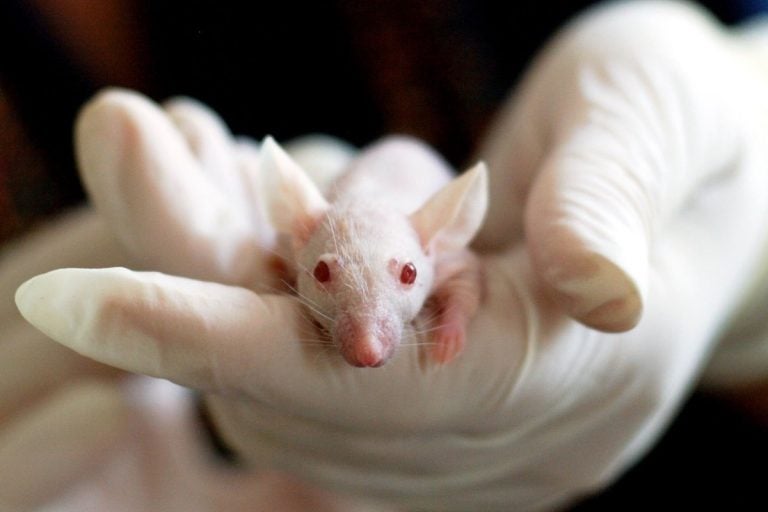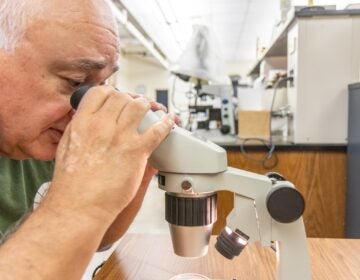What Lab Animals Teach Us
Listen 49:20
We have dogs to thank for pacemakers. We probably should be a little grateful to mice for the development of chemotherapy. Cows helped us conquer smallpox, and chimp research led to the new ebola vaccine. But despite those breakthroughs, animal testing makes a lot of us squirm. On this episode of The Pulse, we explore our complicated relationship with lab animals (and insects). How do we treat them? What are we learning? And what do we owe them?
Also heard this week:
- Medical historian and part-time comedian Michael Yudell pays homage to Tusko, the first elephant to drop acid.
- Neuroscientist Ashley Juavinett talks about doing experiments on mice and rats, and what it’s like dealing with the backlash.
- Alan Yu reports that some researchers say bored mice and rats in barren cages are bad test subjects.
- Geneticist Stephanie Mohr explains what makes fruit flies popular for research on genetic mutations. Her book is “First in Fly: Drosophila Research and Biological Discovery.”
- Geneticist Hugo Bellen from Baylor College of Medicine discusses the model organisms that are best for different kinds of research. CORRECTION: In this episode, we incorrectly listed the model organisms used in Hugo Bellen’s lab. Bellen works with Drosophila melanogaster. We regret the error.
- Duke University bioethicist Nita Farahany digs into the ethics of animal testing, and tries to answer the question of what we owe them.
Segments from this episode
WHYY is your source for fact-based, in-depth journalism and information. As a nonprofit organization, we rely on financial support from readers like you. Please give today.






